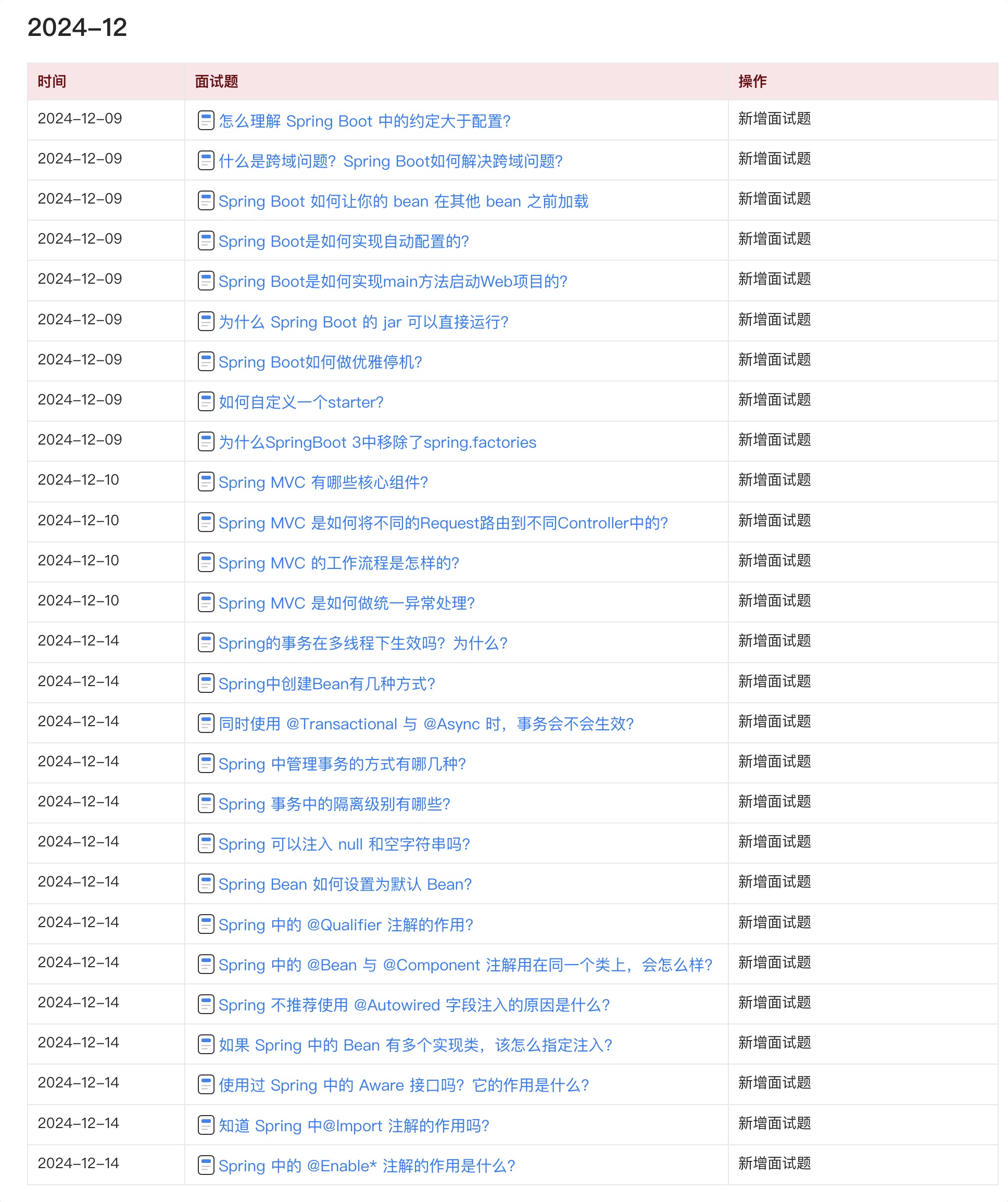一、简介
@Getter(lazy=true)是在Lombok v0.10中引入的。
你可以让lombok生成一个getter,它将在第一次调用这个getter时计算一个值,并从那时起缓存它。如果计算数值需要大量的CPU,或者数值需要大量的内存,这就很有用。要使用这个功能,创建一个private final变量,用运行成本高的表达式来初始化它,并用@Getter(lazy=true)来注释你的字段。这个字段将从你的代码的其余部分隐藏起来,并且表达式的评估不会超过一次,即在第一次调用getter的时候。没有神奇的标记值(也就是说,即使你昂贵的计算结果是空的,结果也会被缓存),你昂贵的计算不需要是线程安全的,因为lombok负责锁。
如果初始化表达式很复杂,或者包含泛型,我们建议将代码移到一个私有的(如果可能的话是静态的)方法中,并调用该方法。
二、示例比较
1. Lombok 写法
import lombok.Getter;
public class GetterLazyExample {
@Getter(lazy=true) private final double[] cached = expensive();
private double[] expensive() {
double[] result = new double[1000000];
for (int i = 0; i < result.length; i++) {
result[i] = Math.asin(i);
}
return result;
}
}
2. Java 标准写法
public class GetterLazyExample {
private final java.util.concurrent.AtomicReference<java.lang.Object> cached = new java.util.concurrent.AtomicReference<java.lang.Object>();
public double[] getCached() {
java.lang.Object value = this.cached.get();
if (value == null) {
synchronized(this.cached) {
value = this.cached.get();
if (value == null) {
final double[] actualValue = expensive();
value = actualValue == null ? this.cached : actualValue;
this.cached.set(value);
}
}
}
return (double[])(value == this.cached ? null : value);
}
private double[] expensive() {
double[] result = new double[1000000];
for (int i = 0; i < result.length; i++) {
result[i] = Math.asin(i);
}
return result;
}
}
三、支持的配置项
lombok.getter.lazy.flagUsage = [warning | error] (默认: not set)
Lombok将@Getter(lazy=true)的任何使用标记为警告或错误(如果配置)。
四、附属说明
你不应该直接引用这个字段,始终使用lombok生成的getter,因为这个字段的类型会被处理成一个AtomicReference。不要试图直接访问这个AtomicReference;如果它指向自己,那么这个值已经被计算过了,是空的。如果该引用指向null,那么该值就没有被计算。这种行为在未来的版本中可能会改变。因此,始终使用生成的getter来访问你的字段!
其他Lombok注解,比如@ToString,总是调用getter,即使你使用doNotUseGetters=true。
参考文献
【1】@Getter(lazy=true) | Laziness is a virtue!
Java 面试宝典是大明哥全力打造的 Java 精品面试题,它是一份靠谱、强大、详细、经典的 Java 后端面试宝典。它不仅仅只是一道道面试题,而是一套完整的 Java 知识体系,一套你 Java 知识点的扫盲贴。
它的内容包括:
- 大厂真题:Java 面试宝典里面的题目都是最近几年的高频的大厂面试真题。
- 原创内容:Java 面试宝典内容全部都是大明哥原创,内容全面且通俗易懂,回答部分可以直接作为面试回答内容。
- 持续更新:一次购买,永久有效。大明哥会持续更新 3+ 年,累计更新 1000+,宝典会不断迭代更新,保证最新、最全面。
- 覆盖全面:本宝典累计更新 1000+,从 Java 入门到 Java 架构的高频面试题,实现 360° 全覆盖。
- 不止面试:内容包含面试题解析、内容详解、知识扩展,它不仅仅只是一份面试题,更是一套完整的 Java 知识体系。
- 宝典详情:https://www.yuque.com/chenssy/sike-java/xvlo920axlp7sf4k
- 宝典总览:https://www.yuque.com/chenssy/sike-java/yogsehzntzgp4ly1
- 宝典进展:https://www.yuque.com/chenssy/sike-java/en9ned7loo47z5aw
目前 Java 面试宝典累计更新 400+ 道,总字数 42w+。大明哥还在持续更新中,下图是大明哥在 2024-12 月份的更新情况:

想了解详情的小伙伴,扫描下面二维码加大明哥微信【daming091】咨询

同时,大明哥也整理一套目前市面最常见的热点面试题。微信搜[大明哥聊 Java]或扫描下方二维码关注大明哥的原创公众号[大明哥聊 Java] ,回复【面试题】 即可免费领取。

